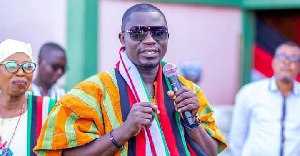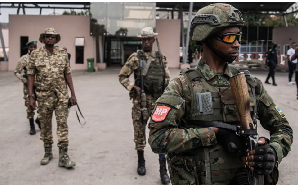The head of the finance department of the University of Cape Coast Professor John Gatsi says the collapse of indigenous bank Unibank was planned and executed by people in power.
According to him, facts and evidence in the public domain following the takeover of the bank have shown that it could have been saved if the government had paid its indebtedness to it.
“It is very clear that it was something that was planned and executed. You notice that after the official administrator advised that if government pays its indebtedness to the bank its problems will be solved, the bank of Ghana quickly took steps to derail that process including the ADB issues and collapsed the bank,” he told Morning Starr host Francis Abban Thursday.
He added that issues surrounding the banking crisis will resurface if there a change in government.
“If there is a change in government this matter will resurrect again if you are looking at it from the political angle. What it does again is to undermine the confidence in the regulators of the financial system”.
The comment comes on the back of a leak of a document believed to be the advice of the Attorney General to government over the revocation of the license of Unibank.
The document points out several procedural errors taken by the Central bank in the revocation of the license.
Background
On 1st August 2018, the Bank of Ghana in a national broadcast shocked the country, including shareholders, by revoking the license of the biggest indigenous bank in the nation, uniBank Ghana Limited.
Two days later, the shareholders of uniBank wrote to the Bank of Ghana, requesting a copy of the KPMG report that informed the decision to revoke their license.
Unfortunately, the Bank of Ghana in a letter dated 13th August, 2018 declined the request for the release of the report to the shareholders which led to the shareholders heading to court to seek redress against the Bank of Ghana for what they perceive to be the wrongful revocation of the license of their bank. Since the suit, there has been no direct communication among the parties, except representations in court.
General News of Thursday, 30 January 2020
Source: starrfm.com.gh
Unibank collapse was planned and executed – Gatsi
10 things to know about BoG's takeover of uniBank
0 seconds of 1 minute, 2 secondsVolume 90%
Press shift question mark to access a list of keyboard shortcuts
Keyboard Shortcuts
Shortcuts Open/Close/ or ?
Play/PauseSPACE
Increase Volume↑
Decrease Volume↓
Seek Forward→
Seek Backward←
Captions On/Offc
Fullscreen/Exit Fullscreenf
Mute/Unmutem
Decrease Caption Size-
Increase Caption Size+ or =
Seek %0-9













